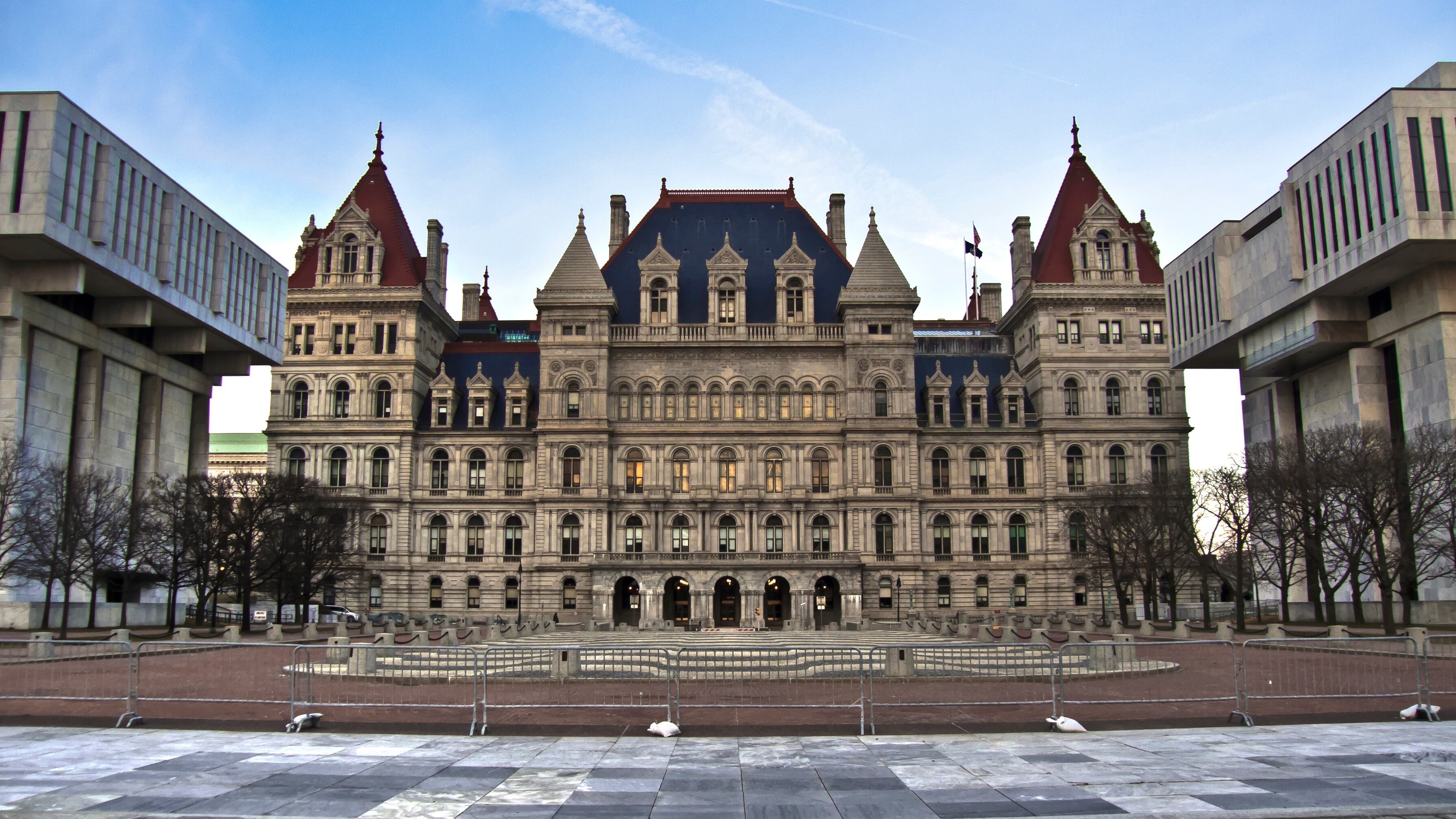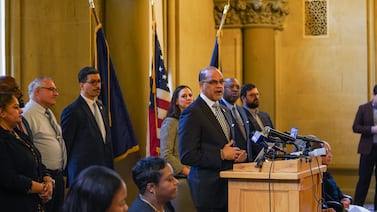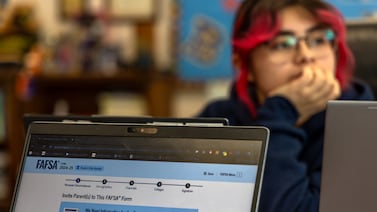Sign up for Chalkbeat New York’s free daily newsletter to keep up with NYC’s public schools.
New York City schools could lose out on $131 million under proposed changes to the state’s school funding formula, officials said Thursday at a budget hearing in Albany.
Because of a change Gov. Kathy Hochul included in her proposed budget last month, the city could see less money than anticipated. Schools Chancellor David Banks expressed concerns at the hearing.
“This does not help us at the level that we expect,” he said. “There’s certainly now additional adjustments we’re going to have to make at the loss of revenue.”
Overall, the city’s schools are poised to receive roughly $13.3 billion from the state for the upcoming fiscal year, representing a more than $340 million increase in state aid from last year. But city officials were caught off guard that the number was lower than they expected.
Typically, state funding accounts for more than a third of the city’s Education Department budget.
Concerns over the state funding formula come as Mayor Eric Adams has significantly cut the budget for New York City schools, chopping nearly $550 million from the city’s Education Department budget for this fiscal year, as well as another $100 million for next fiscal year.
At Thursday’s hearing, which focused on the K-12 education portion of the state’s budget, several lawmakers questioned the governor’s decision to alter the state’s Foundation Aid formula, particularly as school districts across the state prepare for the expiration of billions of dollars in federal pandemic relief funds later this year.
The formula calculates how much funding each school district receives and sends more dollars to higher-need districts. Lawmakers committed to fully funding it for the first time in 2021 — a decision applauded by education officials and advocates.
Hochul’s budget proposal introduced two controversial changes to Foundation Aid. The first would alter how the formula accounts for inflation, shifting to using a 10-year average rate in calculations instead of a single, recent year. It would also modify a “save harmless” provision that prevented districts that saw enrollment drops from losing money.
Become a Chalkbeat sponsor
In total, the state’s education budget would increase by roughly $825 million under Hochul’s proposal, short of the $1.3 billion increase previously anticipated. Her proposal marked the start of negotiations with lawmakers over how the state should allocate its funding in the next fiscal year, which begins in April.
Much of Thursday’s hearing centered on how the Foundation Aid changes could impact districts across the state.
State Sen. Shelley Mayer, of Westchester, who chairs the Senate’s general education committee, noted the change to how the formula accounts for inflation meant the city’s schools would receive approximately $131 million less in funding.
State Education Commissioner Betty Rosa said the funding changes that compensate for enrollment losses could harm 337 school districts, including many in rural parts of the state.
“We do not support this decision,” she said. “It’s been so abrupt and the conversations have not taken place. Our position has been that in order to do this, we really should have a three- to five-year plan, where we have opportunities to get a new formula, where we have opportunities to look at the impact across the entire state.”
Rosa and the state’s Board of Regents have called for revisions to the formula, including the funding of a $1 million study on how the formula can be improved.
Concerns over Foundation Aid also surfaced at a Wednesday meeting of the city’s Panel for Educational Policy, a board that votes on major policy proposals and contracts.
“Everyone here should write to their state legislators and urge them to reject this change in the formula for Foundation Aid to ensure that not just NYC but every district in the state receives the Foundation Aid that they deserve,” said Lara Lai, a senior education policy and organizing manager from the office of city Comptroller Brad Lander.
But Hochul and her staff have defended the proposed changes.
“There has been a significant loss in population for certain school districts,” Hochul said last month. “For us to be wed to the same formulas based on population from 2008 without adjusting for either need or population increase or decrease — it doesn’t make sense.”
Become a Chalkbeat sponsor
On Thursday, Budget Director Blake Washington argued the governor’s approach had “a sense of urgency.”
“Kicking the can for another three to five years is a very easy way to address this issue,” he said.
During the hearing, state Sen. Jabari Brisport, of Brooklyn, floated the idea of raising taxes on the wealthy in order to increase funding for the state’s schools — something Hochul previously told reporters she would not consider.
Other controversial topics addressed by lawmakers at the hearing included whether to continue the city’s mayoral control system and how the city’s schools were preparing to meet the state’s mandate to reduce class sizes.
Julian Shen-Berro is a reporter covering New York City. Contact him at jshen-berro@chalkbeat.org.








